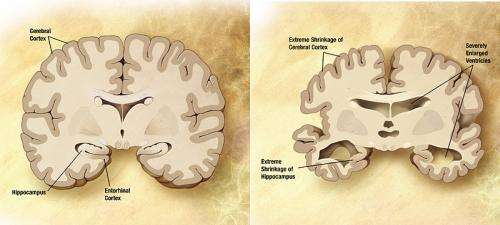Alzheimer's-disease-related proteases control axonal guidance by regulating growth cone dynamics

BACE1 is the major drug target for Alzheimer's disease, but we know surprisingly little about its normal function in the CNS. Soraia Barão and Bart De Strooper (VIB/KU Leuven) now show that this protease is critically involved in axonal guidance processes in thalamic and hippocampal neurons. An active membrane bound proteolytic CHL1 fragment is generated by BACE1 upon Sema3A binding. This fragment relays the Sema3A signal to the neuronal cytoskeleton. APH1B-y-secretase- mediated degradation of this fragment stops the Sema3A-induced collapse and sensitizes the growth cone for the next axonal guidance cue.
Soraia Barão (VIB/KU Leuven): "We reveal a cycle of proteolytic activity underlying growth cone collapse and restoration used by axons to find their correct trajectory in the brain. Our data show that BACE1 and y-secretase inhibition have physiologically opposite effects in this process, suggesting that cautiously-designed combination therapies might attenuate some of the side effects associated with these drugs."
Bart De Strooper (VIB/KU Leuven): "Based on this new knowledge of the functions of both proteases (BACE1 cleaves CHL1, inducing growth cone collapse. Subsequently, y-secretase activity stops the collapse and axonal growth resumes.), we think it wise to proceed the testing of inhibitors of these proteases in humans with caution."
More information: "Antagonistic Effects of BACE1 and APH1B-γ-Secretase Control Axonal Guidance by Regulating Growth Cone Collapse." Cell Reports 2015 DOI: dx.doi.org/10.1016/j.celrep.2015.07.059

















